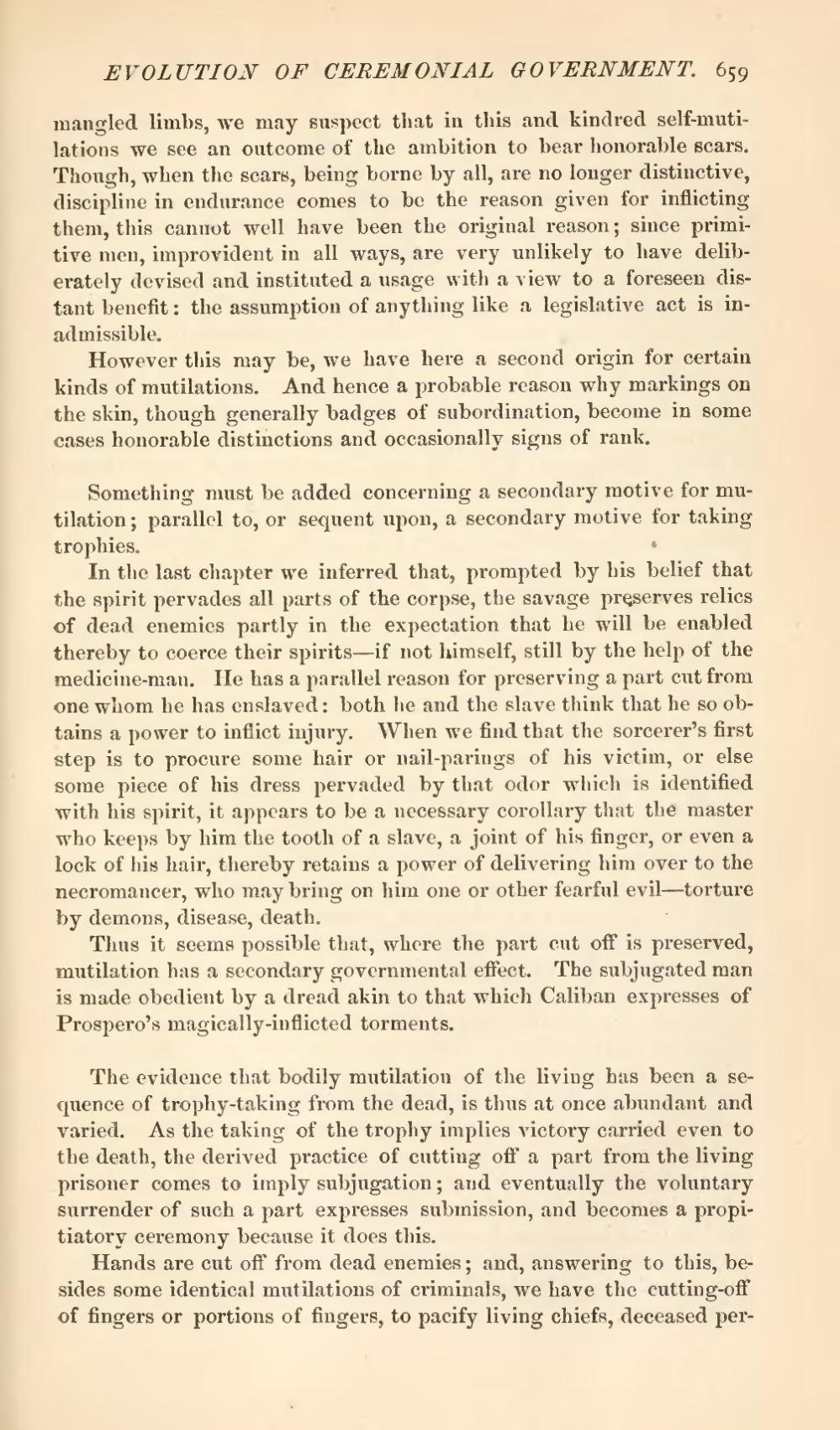mangled limbs, we may suspect that in this and kindred self-mutilations we see an outcome of the ambition to bear honorable scars. Though, when the scars, being borne by all, are no longer distinctive, discipline in endurance comes to be the reason given for inflicting them, this cannot well have been the original reason; since primitive men, improvident in all ways, are very unlikely to have deliberately devised and instituted a usage with a view to a foreseen distant benefit: the assumption of anything like a legislative act is inadmissible.
However this may be, we have here a second origin for certain kinds of mutilations. And hence a probable reason why markings on the skin, though generally badges of subordination, become in some cases honorable distinctions and occasionally signs of rank.
Something must be added concerning a secondary motive for mutilation; parallel to, or sequent upon, a secondary motive for taking trophies.
In the last chapter we inferred that, prompted by his belief that the spirit pervades all parts of the corpse, the savage preserves relics of dead enemies partly in the expectation that he will be enabled thereby to coerce their spirits—if not himself, still by the help of the medicine-man. He has a parallel reason for preserving a part cut from one whom he has enslaved: both he and the slave think that he so obtains a power to inflict injury. When we find that the sorcerer's first step is to procure some hair or nail-parings of his victim, or else some piece of his dress pervaded by that odor which is identified with his spirit, it appears to be a necessary corollary that the master who keeps by him the tooth of a slave, a joint of his finger, or even a lock of his hair, thereby retains a power of delivering him over to the necromancer, who may bring on him one or other fearful evil torture by demons, disease, death.
Thus it seems possible that, where the part cut off is preserved, mutilation has a secondary governmental effect. The subjugated man is made obedient by a dread akin to that which Caliban expresses of Prospero's magically-inflicted torments.
The evidence that bodily mutilation of the living has been a sequence of trophy-taking from the dead, is thus at once abundant and varied. As the taking of the trophy implies victory carried even to the death, the derived practice of cutting off a part from the living prisoner comes to imply subjugation; and eventually the voluntary surrender of such a part expresses submission, and becomes a propitiatory ceremony because it does this.
Hands are cut off from dead enemies; and, answering to this, besides some identical mutilations of criminals, we have the cutting-off of fingers or portions of fingers, to pacify living chiefs, deceased per-
